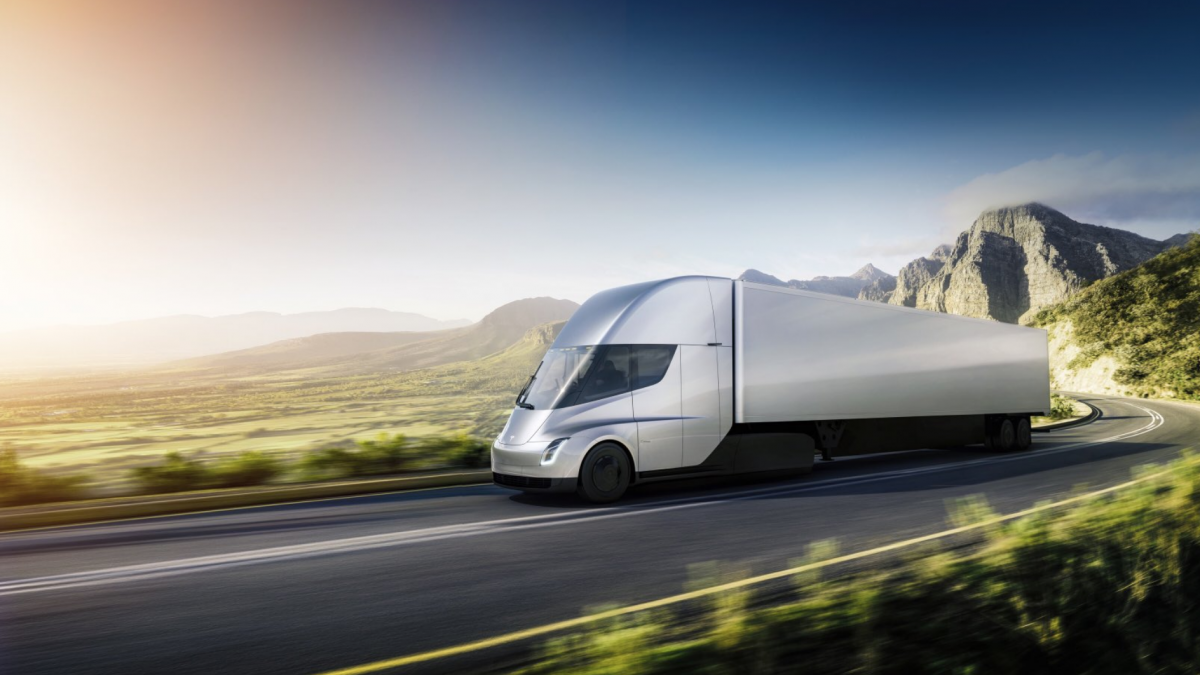Tesla Semi Enters the Growing Electric Bus and Truck Trend
Electric buses and trucks are increasing in popularity due to their fuel efficiency, reduced emissions and cost-effective maintenance.

The Tesla Semi was unveiled last week and took the automotive world by storm. The electric heavy-duty truck is set to begin production in 2019, however, two customers have already demonstrated an interest in purchasing it. Real Clear Energy reports that the first prospective client is J.B. Hunt Transport Services and the second is Meijer Inc., the Michigan-based grocery store chain. When it comes to automakers rushing to take part in the electric bus and truck segment, Tesla is certainly not alone. The race is on for domination of the market or at least staying a step ahead of the rest.
Electric buses and trucks are becoming more popular because they help customers save money on gas and maintenance bills. According to a post by Mashable, 12 of the largest cities around the globe have recently pledged to add all-electric buses to their public transportation fleets starting in 2025. These cities include some that are pretty close to home, such as Los Angeles and Seattle, Washington.
Volkswagen, a clear contender for the electric market, is jumping on board with the trend. Bloomberg reports that the German automaker has committed $1.7 billion to develop the required technology needed to manufacture electric trucks and buses within the next few years. Volkswagen intends to focus on creating smaller batteries while increasing the efficiency of them to make these vehicles more desirable to the public.
Unique Electric Solutions is another company committed to the electric effort. It is currently working on a technology called uniqueEV to allow UPS to operate more electric trucks. According to Real Clear Energy, the authority is providing UES with $500,000 to help pay for research and designs. A production version of the truck is expected to be revealed by spring 2018 with a single-charge range between 40 and 125 miles.
“Public-private partnerships help push innovation forward and transform industries,” said Carlton Rose, UPS president of global fleet maintenance and engineering. “This program will help UPS develop and deploy electric delivery trucks faster and more affordably.”
At this time, UPS operates over 770 electric and hybrid vehicles, as well as more than 8,500 alternative fuel trucks all around the world. By the year 2020, UPS is determined to have one in four of its vehicles electric, hybrid, or alternative-fuel. Following that, in 2020, UPS aims to have 1,500 trucks operating on electricity—that is 66 percent of the entire UPS fleet.
There are a number of other companies that are also interested in incorporating electric vehicles into their fleet. These include FedEx, Frito-Lay, and Coca-Cola. Back in 2009, Coca-Cola introduced hybrid electric delivery trucks in New Orleans. The Alternative Fuel Data Center quoted Rebecca Otte, the coordinator of the energy partnership, "The move demonstrates Coca-Cola Enterprises' on-going commitment to a more sustainable community and serves as a great example of a viable clean transportation option for similar fleets." Earlier this year, FedEx also introduced Nissan e-NV200 vehicles for pickups and deliveries in the United Kingdom. Even the popular chip company, Frito-Lay, currently operates more than 250 electric vehicles worldwide.
Many people, nowadays, are aware of the environmental gains and money savings that result from electric transportation. All around the globe, transportation electrification is growing in popularity and becoming a priority in the foreground. The demands and options for buses and trucks are expanding, as is the charging infrastructure for them. It is beneficial that the public understands the relevance of the electric effort and that more public-partnerships form to benefit the cause. The result of such collaboration would be the delivery of more vehicles to choose from and at a more affordable cost too.
